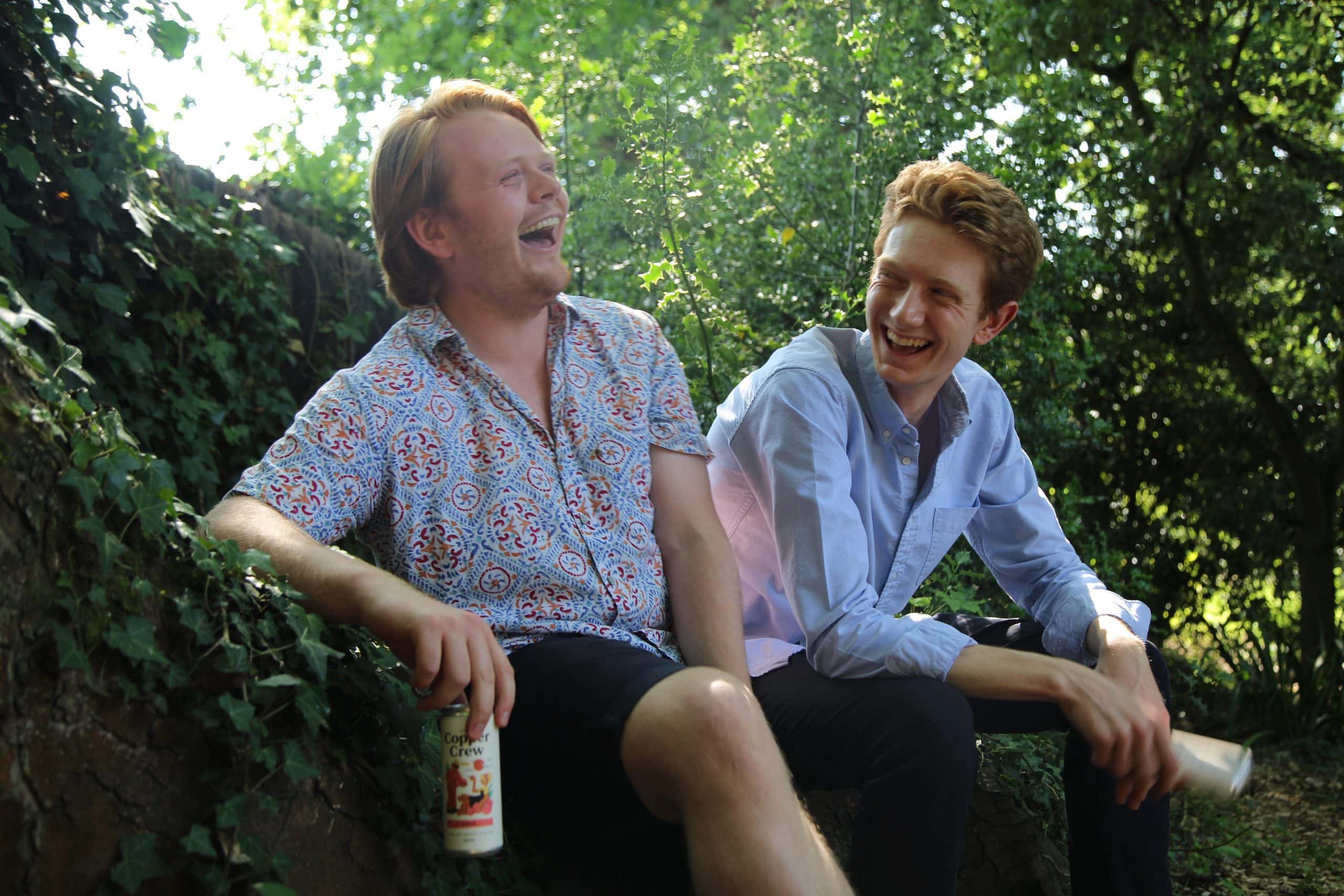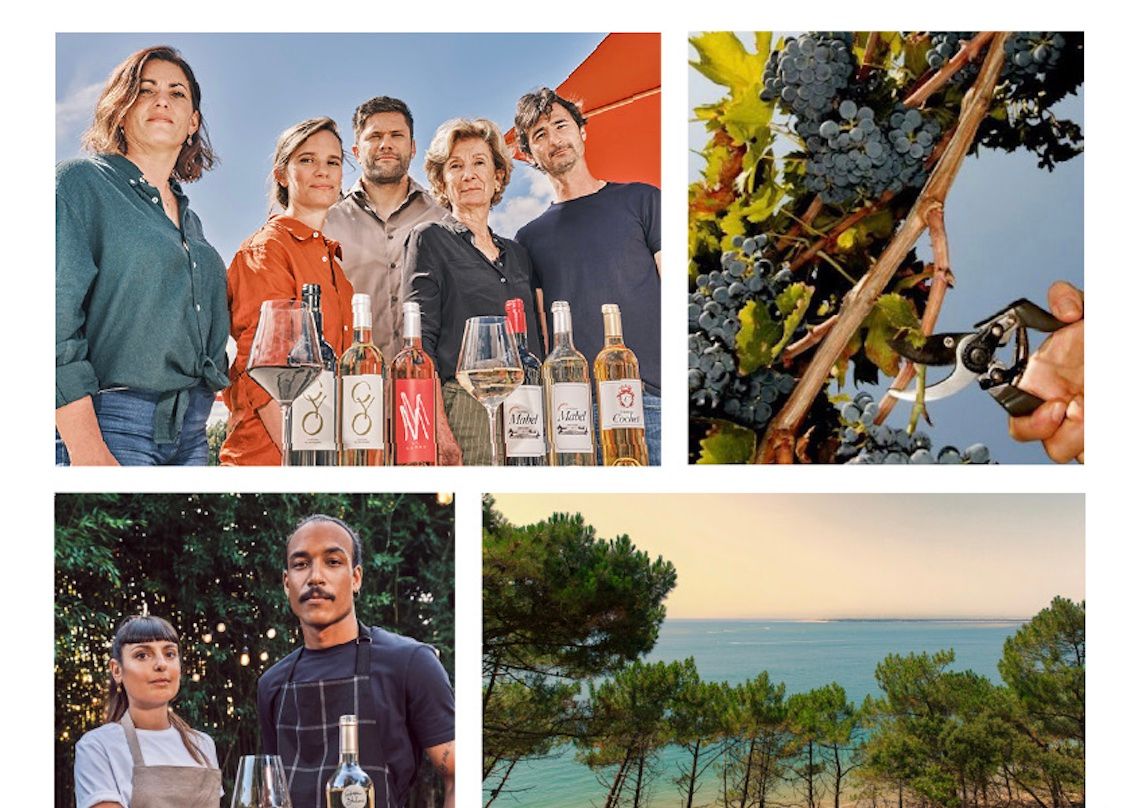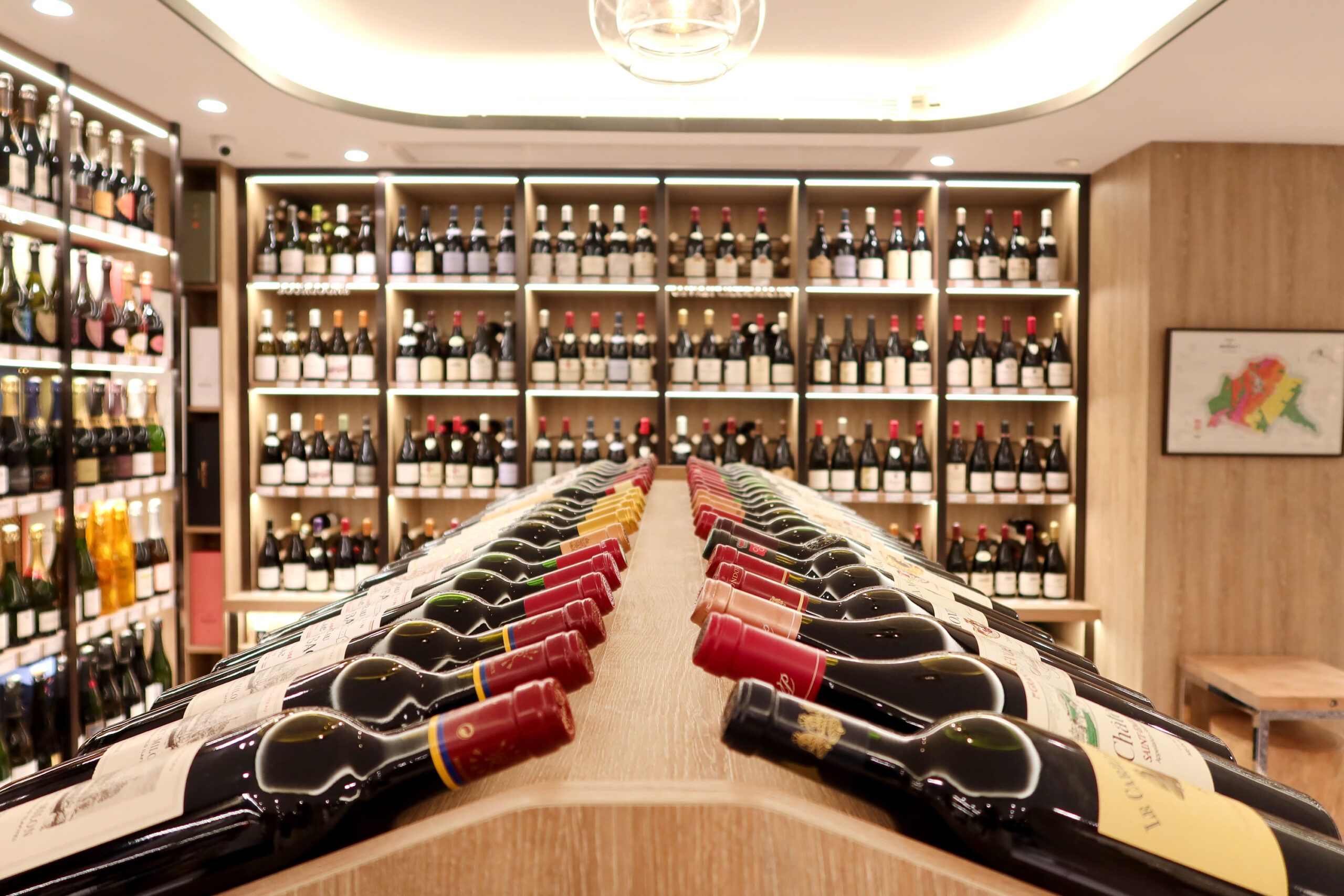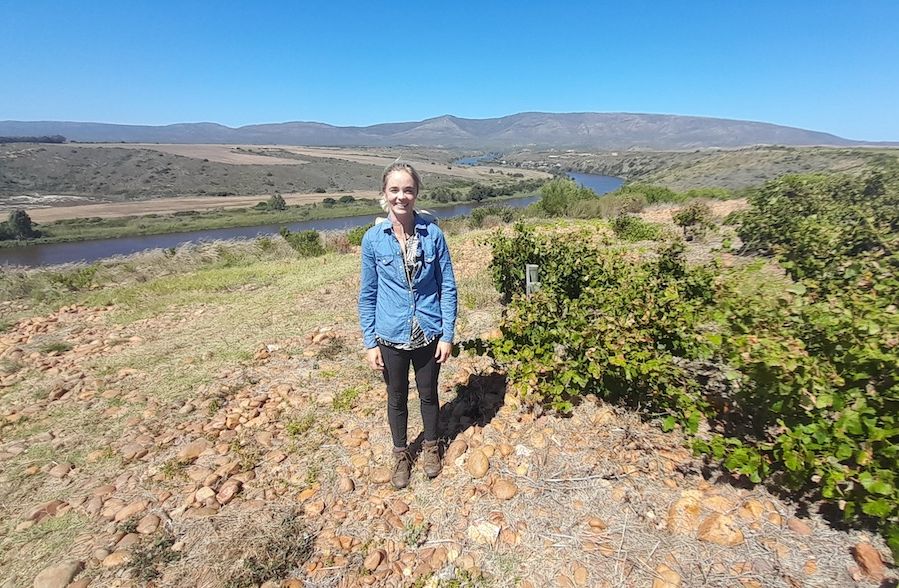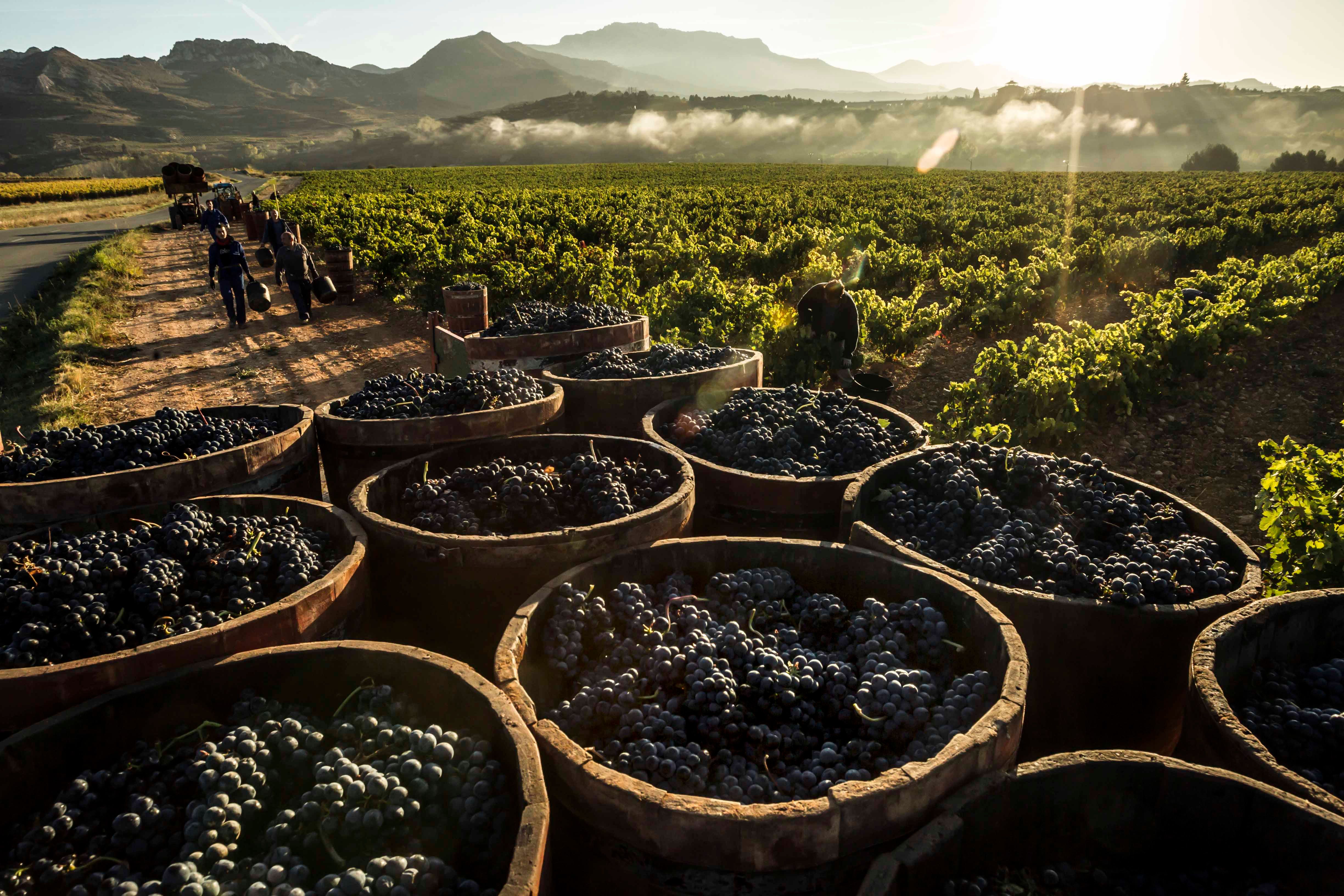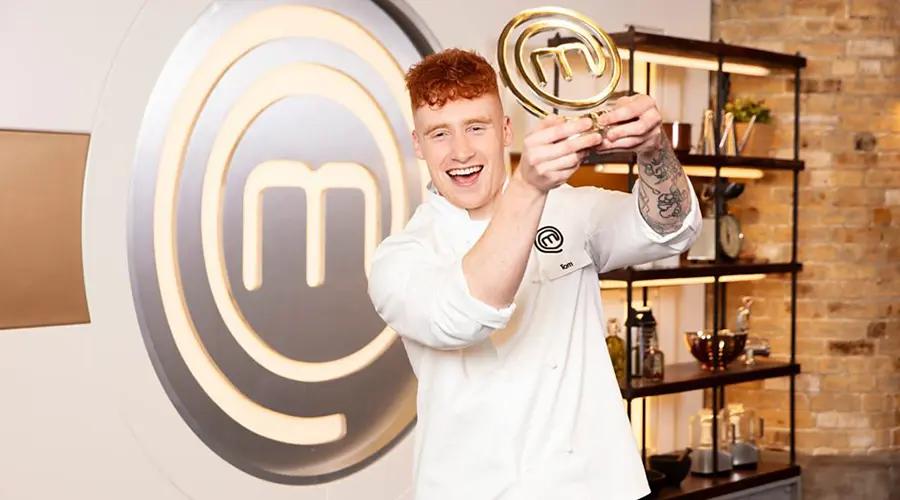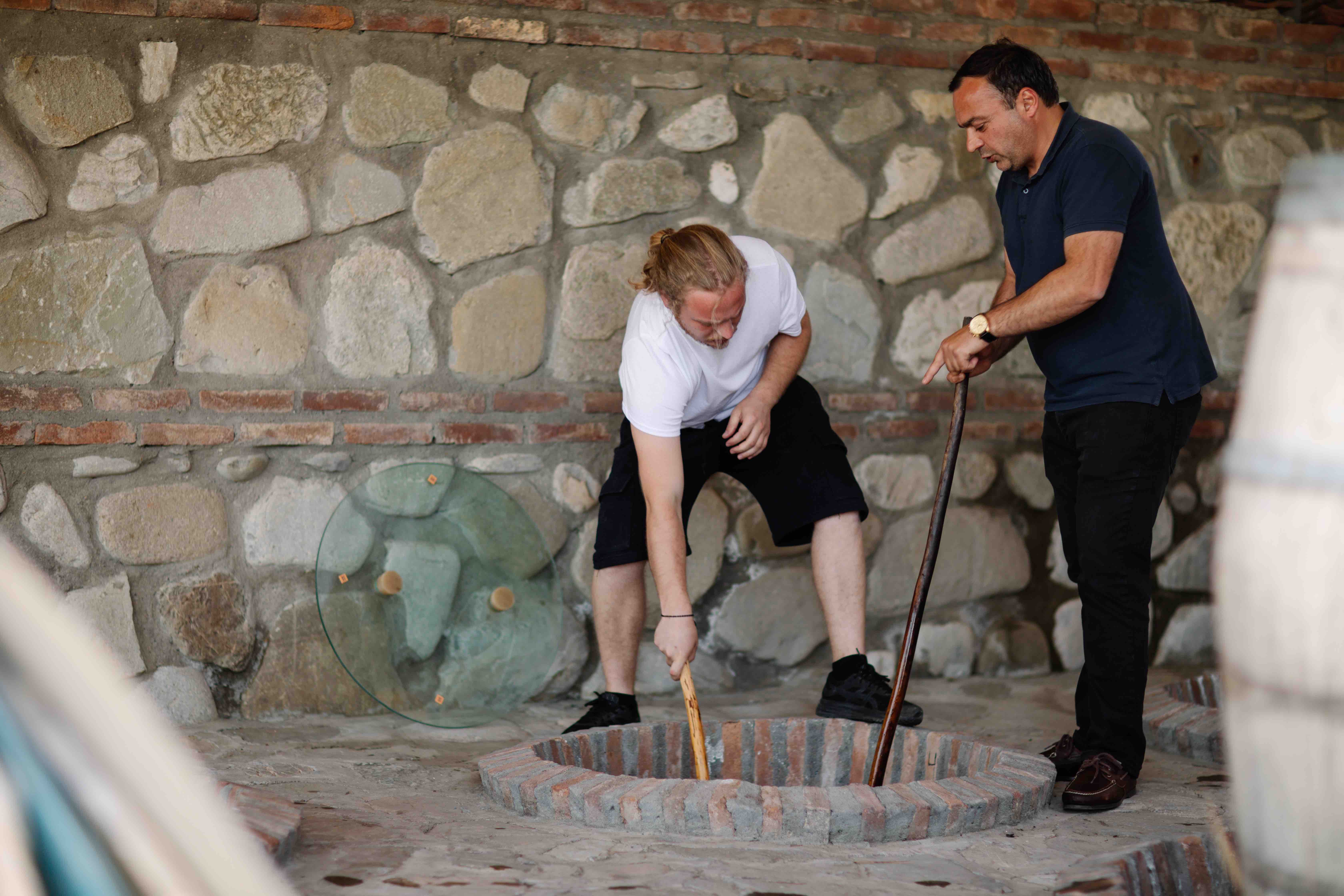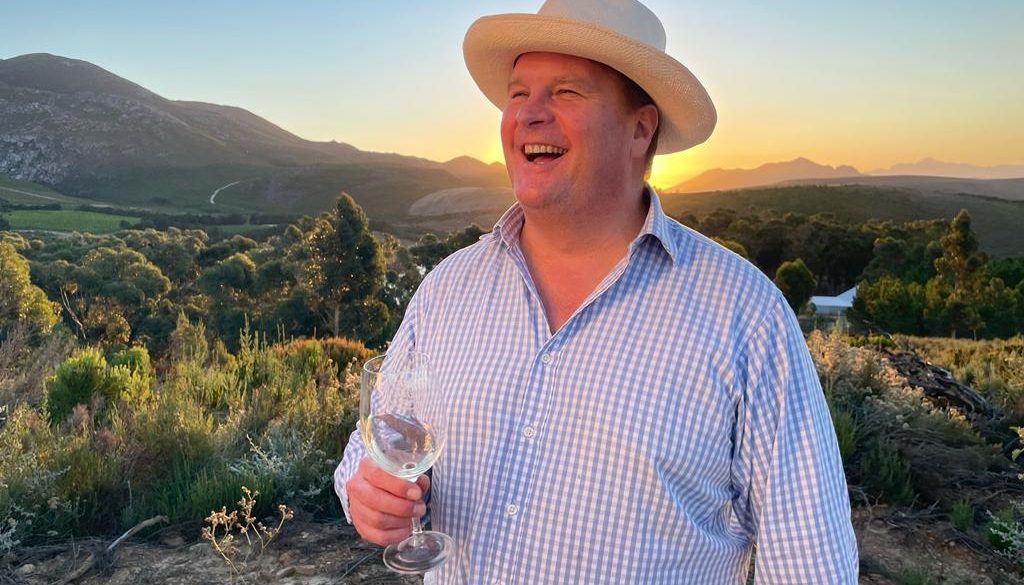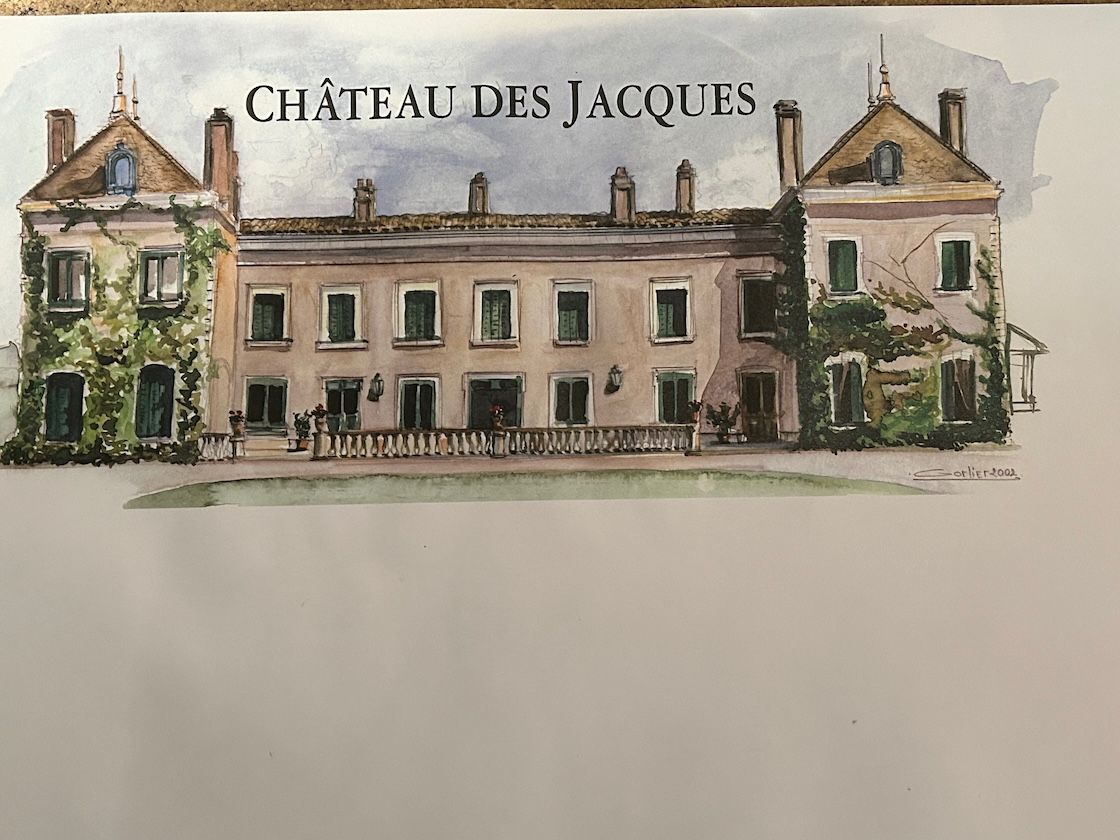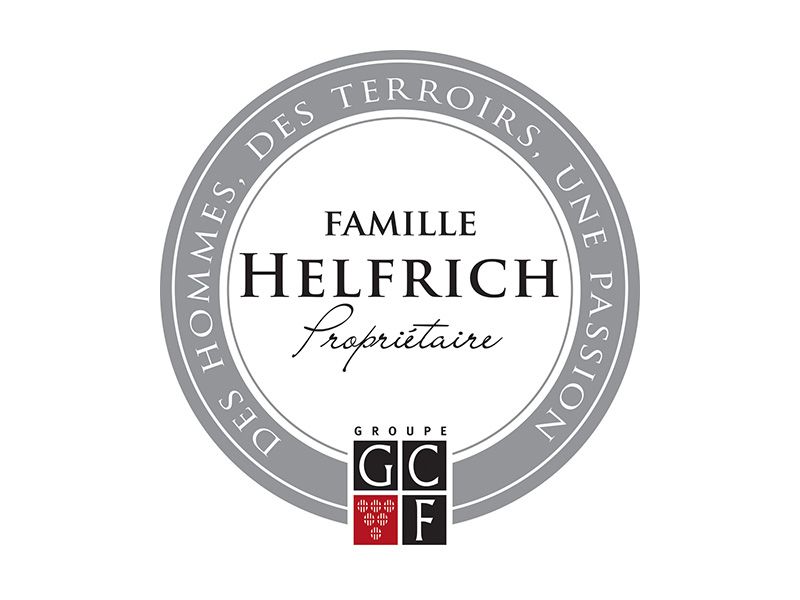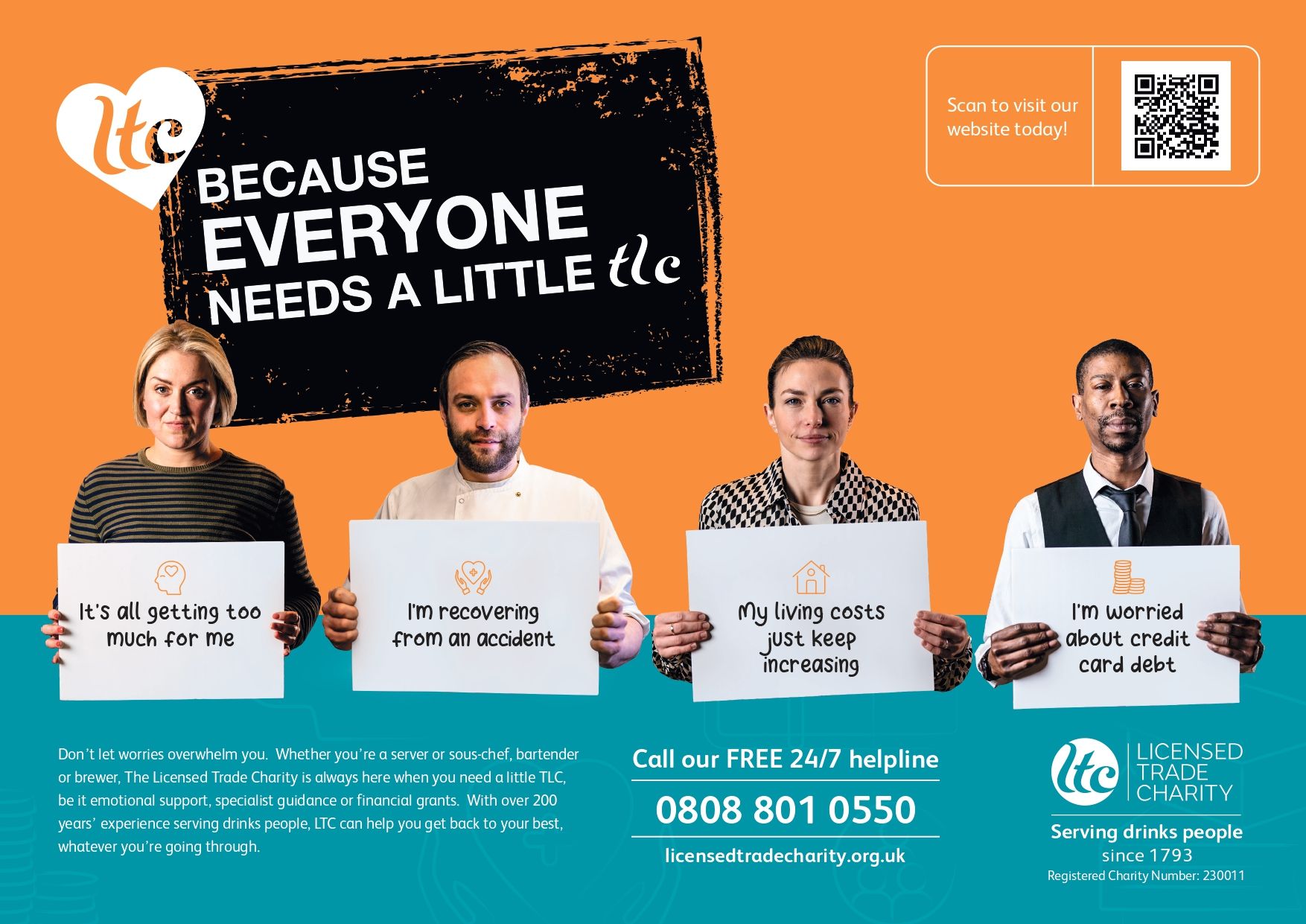The Copper Crew are Oli Purnell, Theo Gough and Sam Lambson, who together believe they have created a new wine brand that proves you can put premium, quality wine in a can.
Tell us about Copper Crew – what are your backgrounds and what are you hoping to achieve?
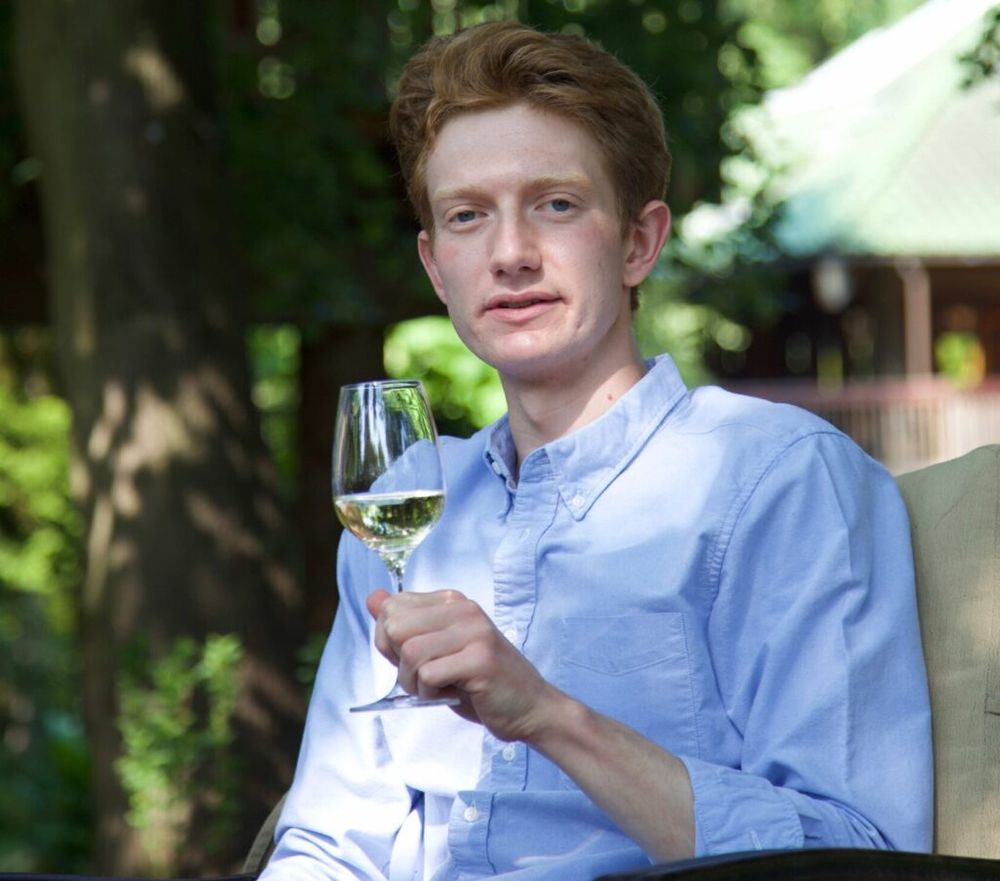
Oli Purnell is convinced there is a big gap in the wine market for a quality, premium canned wine brand
Oli Purnell: We’re three friends who want to make good quality wines fun. We felt that the vast choice offered in supermarkets and elsewhere was overwhelming and often ended up with most people getting something they didn’t particularly want, or just sticking to the same drink the whole time. There’s an unbelievable amount of knowledge you can learn about wine, but we felt that most people just want a really delicious wine rather than learning all there is to know.
A look at supermarket shelves also convinced us that wine labelling and marketing really was stuck in another century for the most part (and so are bottles too). We thought this meant a whole group of would-be consumers were being turned off from drinking and getting into wine – mostly people like ourselves between 20-35. With all that in mind, we were convinced that if we made fantastic wines and came up with a brand which resonated with millennial and Gen Z drinkers, we’d be onto a winner.
As to the who? There are three of us and we each bring something different. I was living in the US between 2018-19 where I was a fellow at Harvard and was trying to get into every class I could at Harvard Business School. At some of the parties I went to I saw something I hadn’t seen before – canned wine. It was one of those things that the more I thought about it the more I thought, this could really work back home. I just couldn’t get the idea out my head. When I came back to the UK I had shelved the idea while I was considering my options, but then myself and Theo [Gough], who I have known since Reception, got together for a curry one August evening…
We shared what was likely too many beers and got onto the topic of canned wine. At the time, Theo was a management consultant so knew a thing or two about business, and was also looking to leave his job. We both thought this was too good an opportunity to miss and there would probably never be a better time in our lives to start a business, so we did.
You then needed to bring in someone who knew about wine?
Yes. That’s where Sam comes in. Theo had lived in South Africa for five years when he was growing up and Sam [Lambson] was a school friend. Sam had studied oenology at Stellenbosch and became a winemaker at the tender age of 20. Sam had set up his own wine label, Minimalist Wines, which had seen sell out success in the UK and even got him written up as one of Jancis Robinson MW’s unofficial wines of the Week.
Sam has a real passion for quality wines, but also sustainability, so Theo thought he might be interested in our idea to start a canned wine business and it started to come together. That said myself and Sam have never actually met in person. We planned a trip out to the Cape for our first canning run but like most things in 2020 that got shelved. We’ll make it to the Cape one day…
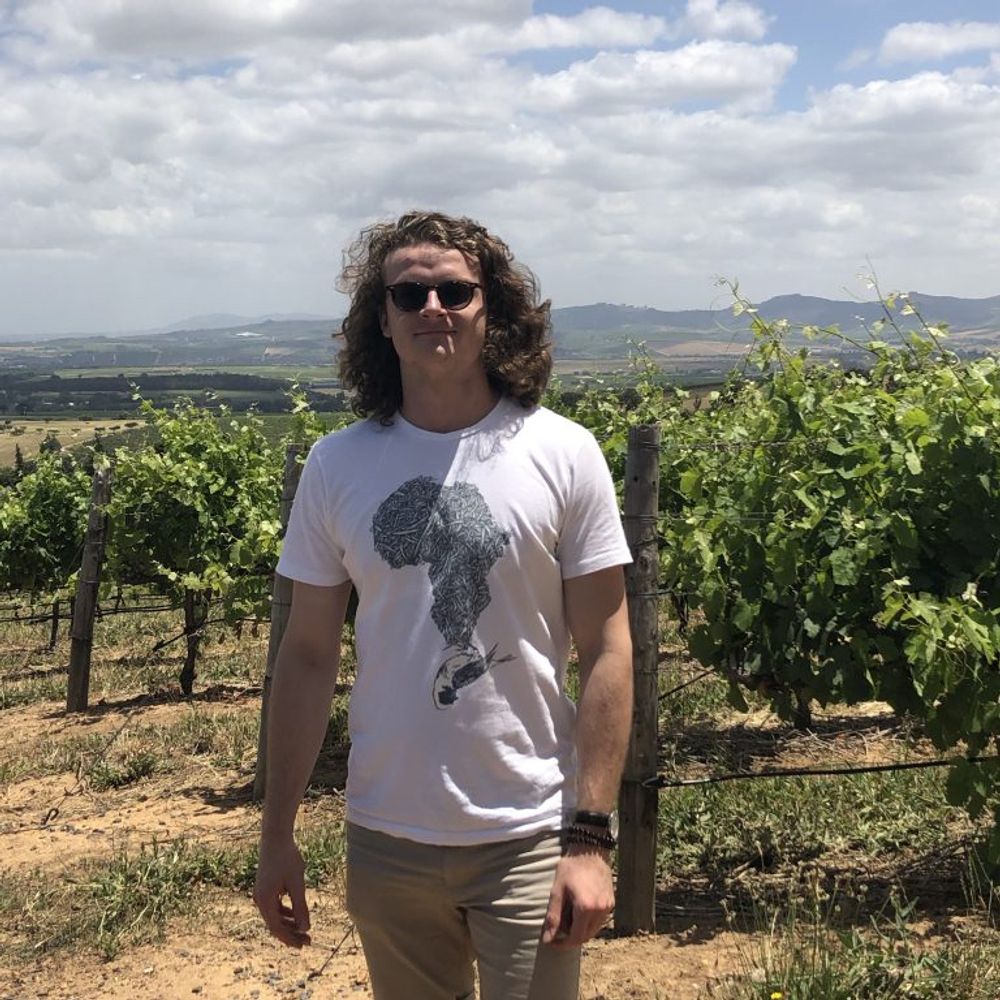
Sam Lambson will be already known to many in the wine trade for his Minimalist Wine South African wine business
How did you develop the brand?
We spent the first three months doing really in-depth market research and getting to know everything we could about the process of canning wine. Doing this was absolutely critical for us because with quality being at the heart of what we wanted to do we needed to get it absolutely right. We travelled up and down the UK to industrial estates across the land, but we weren’t particularly impressed with what we saw. It was either the case that minimum order quantities were massive (100k+), or we just weren’t convinced about the quality of the process. That led us to decide to can all of our wines in South Africa, where canned wine is a bit ahead of where it is in the UK, so the infrastructure being canning is a far way ahead.
We also needed to understand the science behind cans and the canning process itself, and sourcing the right fruit. This is where we’re incredibly lucky to have Sam, not only because of his seriously deep wine knowledge, but also because of his ability to travel around South Africa and source exactly the kind of wines that work so well in a can. We left that to him and towards the start of 2020 a DHL box of samples arrived at our door – and we loved them. Our trust in Sam was well placed.
When did you go into production?
We finally canned everything at the beginning of March 2020, which as is so obvious now, was a terrible time to do it. Luckily we did finish canning before Covid hit, but when once it had it caused complete havoc. South Africa’s ban on not just the sale but also the movement of alcohol meant our hands were basically tied. Our freshly made cans were just sat in the warehouse waiting. Finally, around May, we managed to get a small amount of them flown out to the UK. Seeing them for the first time is something we’ll never forget.
Getting stock out of South Africa remained a nightmare for months but eventually we managed to get a decent amount of stock over to us. In the meantime we busied ourselves coming out with what everyone was asking for – a red wine. We were surprised how keen people were for a red, especially considering it was August at the time. We got the label made up, and Sam hit the road to find another fantastic wine which he did in Elgin.
Cans have been around for a while now, why do you think you can make a difference?
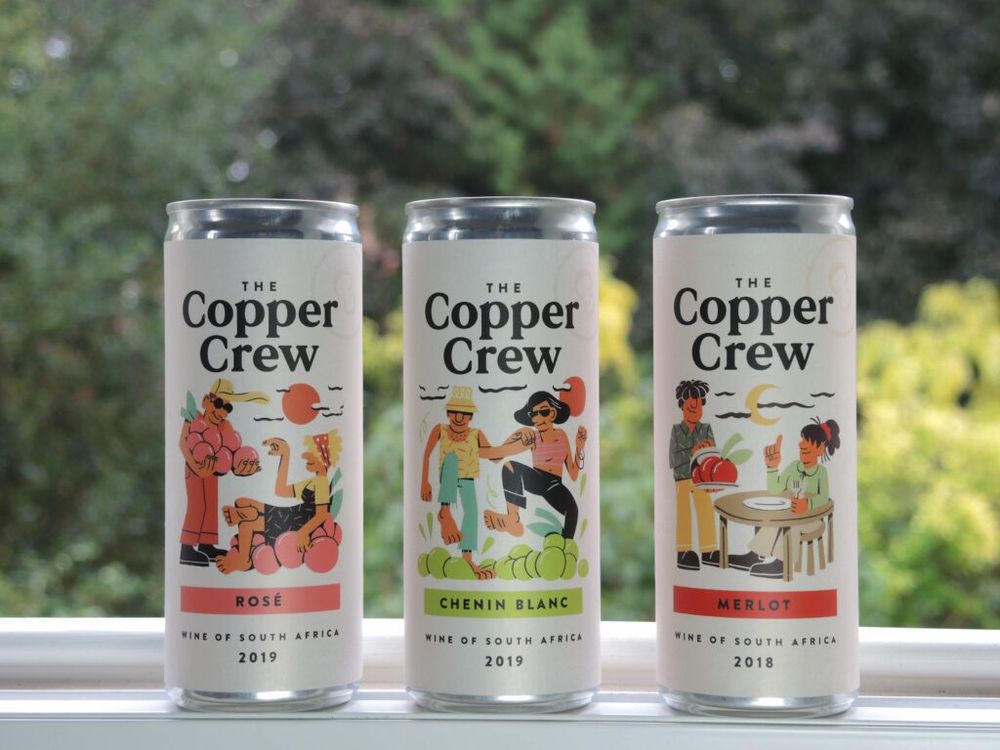
What it is all about: the three cans in the initial Copper Crew range
Purnell: They have, but the canned wine scene in the UK is still very early stages. The key thing we wanted to offer was quality and fun. We felt that much like the craft revolution in beer, canned wine will, and is beginning to see a drive towards quality and we want to answer that call.
There are two other important things as well. A winemaker is part of our business, so not only do we have the technical side, but we can also come out with new wines pretty much as we like. Secondly, we’re all under 25 so we understand the group we are trying to sell to. By talking to customers, the industry, friends, pretty much anyone who will talk to us, we can address the problems people have with wine and develop a brand they love.
Sam – what is your background and how did you get into wine?
Lambson: I started Minimalist Wines back in 2018 while studying at Stellenbosch and entered into the UK market under the expertise of Richard Kelley MW of Dreyfus Ashby. After living and studying in the Cape Winelands, and travels to some of the planet’s other exciting wine regions, I’m yet to find something not to love about the world of wine.
From the first hours spent poring over The World Atlas of Wine during quiet shifts at the tiny local wine store, between oenology classes at the University of Stellenbosch, I was hooked. Then, harvests with three outstanding winemakers (Lukas Van Loggerenberg, Chris Alheit and De Morgenzon’s Carl van der Merwe) sealed the deal.
It was during my second harvest, while studying for WSET3 and tasting incredible wines from all over the world, that I got it: every vineyard has its own story to share. I was blown away by the Syrahs of the Northern Rhone, from Cornas to the Cote Rotie, with all their distinctive nuances. Right then, I knew I wanted to focus on making Syrah and use its elegant power to showcase South African terroir, especially in the Cape’s under-appreciated cooler climate vineyards.
Interning with Lukas van Loggerenberg as he made his legendary wines from a shed in Stellenbosch’s Devon Valley, showed me that making really good wine is mostly about working with good grapes and good people. So after harvest, I spent every cent I’d ever earned on the best fruit I could afford, rented a bit of cellar space at the University’s historic Welgevallen Cellar and, with the generosity of some very special wine farming friends, borrowed the equipment to make a small batch.
I’d just come out of a long episode of depression and, strangely, even when I felt totally numbed out and nothing else made sense, great wines could still reach me. So calling it Stars In the Dark made sense and bottling it with my family, on my 21st birthday, was the best beginning I could ask for.
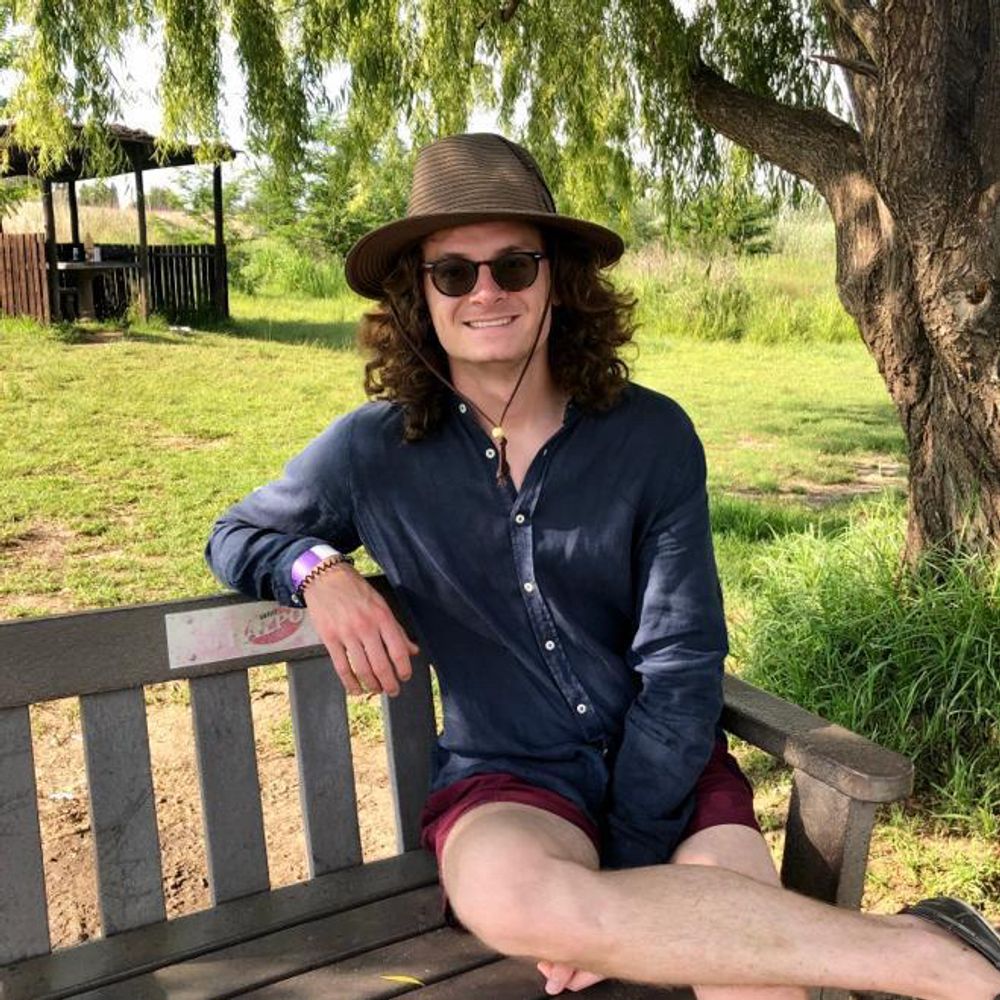
Sam Lamborn has worked with a number of leading South African producers and has the inside line on where to source the right premium fruit for a canned wine
There are concerns about putting premium wine in cans, but you are sure it can work – why?
Lambson: The wines need to be ready to drink and enjoy on release which differs from the bottled product, but considering the dwindling number of consumers who cellar wine religiously it’s a good place to be. Gone are the days of asking consumers to wait and pay to wait.
Purnell: We’re sure it works because we’ve done our homework. When you’re canning wine you’ve got to understand a) the chemical parameters which work in a can which is about understanding the lacquers used inside cans, and b) sourcing the right wine to can. It’s a bit of a chicken or egg problem and finding answers about the chemical parameters of cans themselves is an absolute nightmare because a lot of the technology surrounding cans is patented and trade secrets. Our persistence paid off with finding out the technology and parameters behind canning wines, and knowing that, we could find and make wines we knew would work really well.
All of that though is purely technical. There are of course people who say, ‘well you’re never going to replace bottles’ and we say ‘yeah we completely agree, that’s not what we’re here to do’. There is of course a time and a place for bottles. What we’re proving is that there is also a demand from consumers for better quality and fresh tasting wines in new formats.
How do you source the grapes that go into your wines?
Lambson: We start with the wine style we are shooting for and then select regions that align with that stylistic goal. Then, we approach like-minded growers that are quality (not quantity) oriented that have excess grapes and wine to service their needs. The wines are Western Cape blends, not limited to a particular site or climate to allow us the freedom to source what’s best each vintage and maintain our position as the most awarded canned wine in the UK and deliver consistent quality.
Any particular difference to how the wine is made for it to go into a can than it would in a bottle?
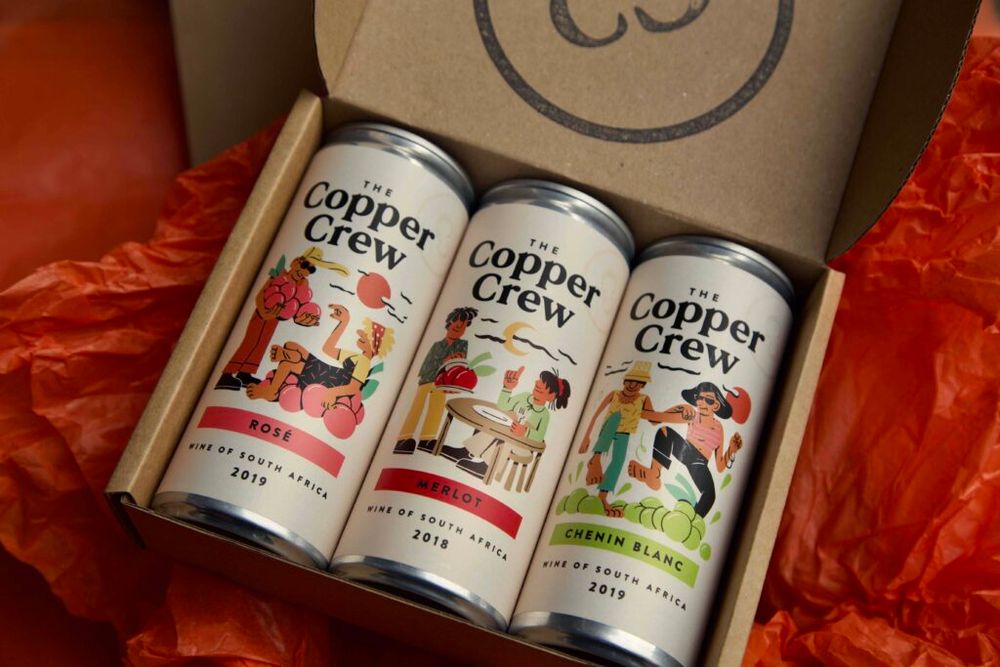
The Copper Crew wines have been widely praised by leading wine writers including Jancis Robinson MW and Victoria Moore
Lambson: In terms of the process, no, not really. We approach making our wines just as you would any other quality wine. What is important, however, is that we control the SO2 levels in our wines because unlike bottled wine, canned wines don’t need to last for 20 years. We do this mostly in the sourcing process, but we also keep a very close eye on SO2 levels during ageing and blending. Fundamentally, canned wine is an FMCG product, so we do all the work in making sure the wine is already at its absolute best so it can be drunk right away.
Theo and Oli – how have you found it coming into the wine industry?
Purnell: Both of us are fundamentally people people. We love being with our friends, meeting new people and learning what we can. From an outsider’s perspective that was one of the very few things I knew about the sector – wine seemed to be a people driven business. Of course, because we launched in 2020, we haven’t really seen that side of the business, but we can’t wait for it to be back. It was also the opportunity we saw in the sector. We’re deadly serious about wanting to really develop The Copper Crew, bring out new wines and show that wine can be more sustainable and just as good. If there wasn’t an opportunity to run a great business, I certainly wouldn’t be here.
Gough: I was getting fed up with always reaching for the same recognisable bottle in the supermarket. Buying wine had become a bit of a chore before dinner parties and I began thinking that was wrong. There’s a whole world of exciting wine out there and I was drinking only one bottle of it. Now, of course, I mostly drink cans of three different wines, but if we can encourage a few people to broaden their wine horizons and have some fun doing so, then that’d be great.
That is linked, as Oli mentioned, to the people side of the business which was a huge draw to the sector. I’d spent a lot of time staring at spreadsheets in my previous job, so the prospect of getting out and about, meeting people, and selling a great product was exciting. Indeed, the 1984 ambulance which we converted into a mobile bar is still sat at the end of my parents’ driveway, ready for a festival season soon.
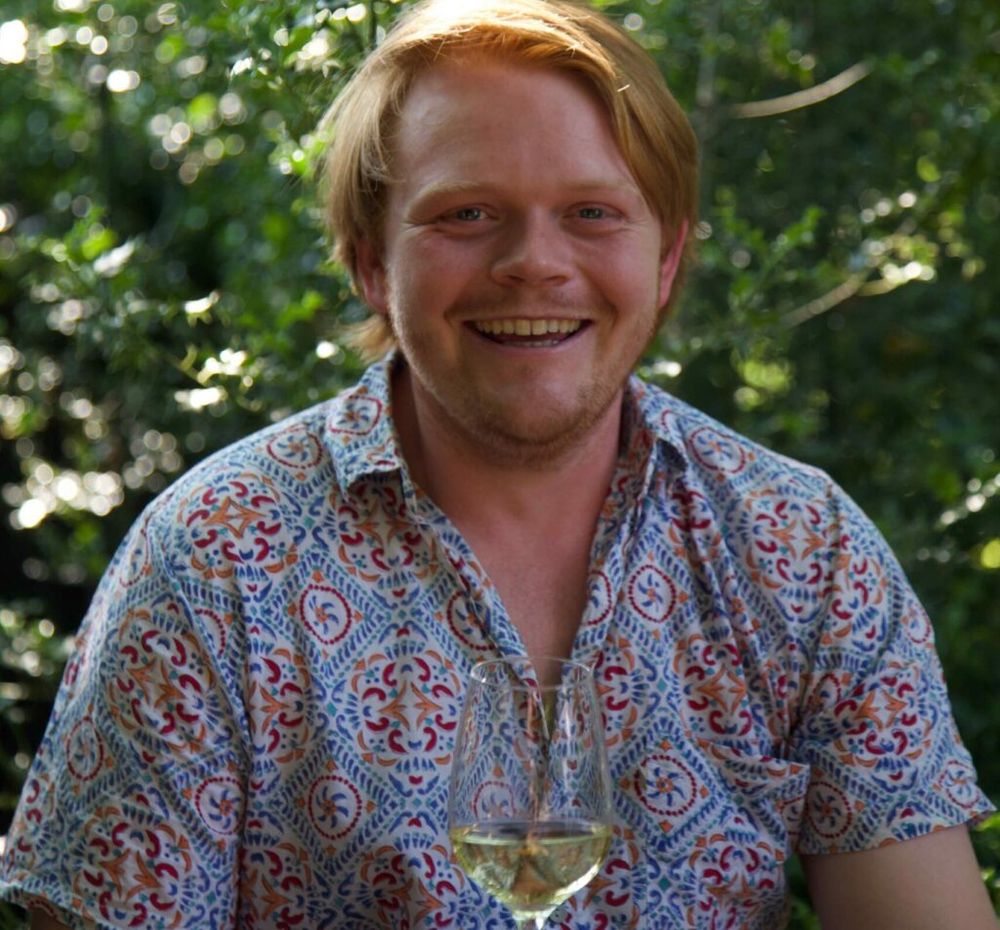
Theo Gough loves how no two days are the same working in wine
Wine gives an opportunity to see the development of the product right from raw inputs to a finished range on a shelf. It’s always interesting and there’s always something else to think about. No two days are the same and I love that.
Lastly, wine is an international industry and that really appealed, though sadly this is the side of the business that has suffered most as a result of Covid. I really want the chance to spend more time in South Africa, a country I loved living in while growing up. Fingers crossed that it won’t be too long before we can be getting sunburnt in Cape Town with a can of our rosé.
You have managed to get the brand off the ground and wines packed yet you have still not each met other – how have you done that?
Lambson: The wonders of Zoom. I feel like we’ve been mates for years – because we have, albeit virtually. It is easy to conduct business in another part of the globe when you have instant communication at your fingertips – sometimes it is even easier and more focused than when you’re in the same place.
Purnell: Sam is absolutely right – it feels like Sam and I were mates at uni or something. The distance between us does mean we have to be really on it communications wise and we try our best, but can always improve. The thing that I really miss is the day that the three of us can be in the same room together just hashing out ideas I think will be huge for us. Also being about fun, I’m desperate to share a can of our wine with Sam and just get talking. I’ve seen the cellar, the vineyard, and seemingly a fair bit of South Africa from Zoom, but I want to see it for real.
What is the range now and your plans in terms of distribution?
Purnell: Currently we have three wines – a Chenin Blanc, Rosé and Merlot. They’ve been received really well and have so far picked up eight wine awards. We’re really proud of that fact, it makes us the most awarded canned wine brand in the UK and we had to pinch ourselves every time an award came through.
It was amazing to get feedback from Jancis Robinson MW on the three wines. Jancis was already well aware of Sam, and I filled out a form on her website about getting in contact. It was one of those things I thought ‘why am I spending ages writing all this out, I doubt her inbox even gets checked’. But low and behold – I got a reply a couple of hours later from Jancis herself. Getting that email and talking to Jancis really has been a privilege.
Distribution wise we’re really focusing on independents, building out our own sales through our website and getting in touch with buyers (so please get in touch) At the moment we self distribute which is a great way to learn the ins and outs of the trade, but at some point we hope to build our own base enough that we can approach a distributor with a great offer and build out from there.
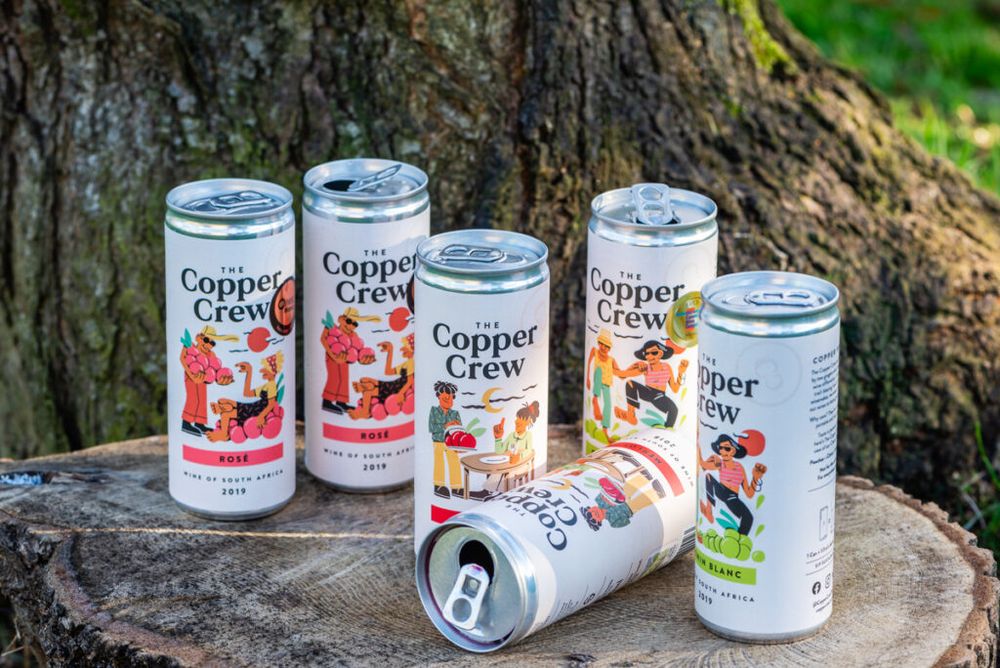
The Copper Crew team are hopeful the cans will be a big hit during the outdoor live events and festival season
What do you see as the key price point and how hard will it be to get people to trade up to more premium cans?
Gough: Key price point is just the same as bottles – can be low, medium or high to reflect the quality of the wine and brand. The main thing is meeting customer expectations at each of those marks, otherwise, as with any consumer business, we wouldn’t be around for long.
Purnell: Getting people to trade up isn’t difficult if you’re in the right place and have a product which resonates. The awards certainly help and are a great marker for customers, but it’s also about the intangibles, how do people react to the brand, are they coming across you in the right context, who are you competing with etc? One of the best complements we get is when someone says to us ‘I tried canned wine before and wasn’t convinced but I picked up yours because it looked interesting and now I completely convinced’. When that happens, we’ve done our job.
Who do you see as your target customer and how are you reaching and marketing the wines to them?
Purnell: Our main focus is on Millennials and Gen Z, which we do through making our wines look fun and engaging and by marketing to them across social media. We also work hard to try and get stocked as much as we can in and around Cambridge because it’s great to work with local businesses and it’s a good way for us to learn what works and what doesn’t. Choosing the right places to be is really important because if you get that right in a way the work is done for you.
We’ve also been surprised, though, that we really seem to have hit a customer need for older consumers as well, between 50-80 years of age. These customers really value the single-serve format nature of cans, the quality of our wines and the sustainability benefits. One of the most effective ways of reaching these customers is word of mouth. It is quite often the case that someone will place an order with us and then in a week’s time we get an order from their parents or even grandparents.
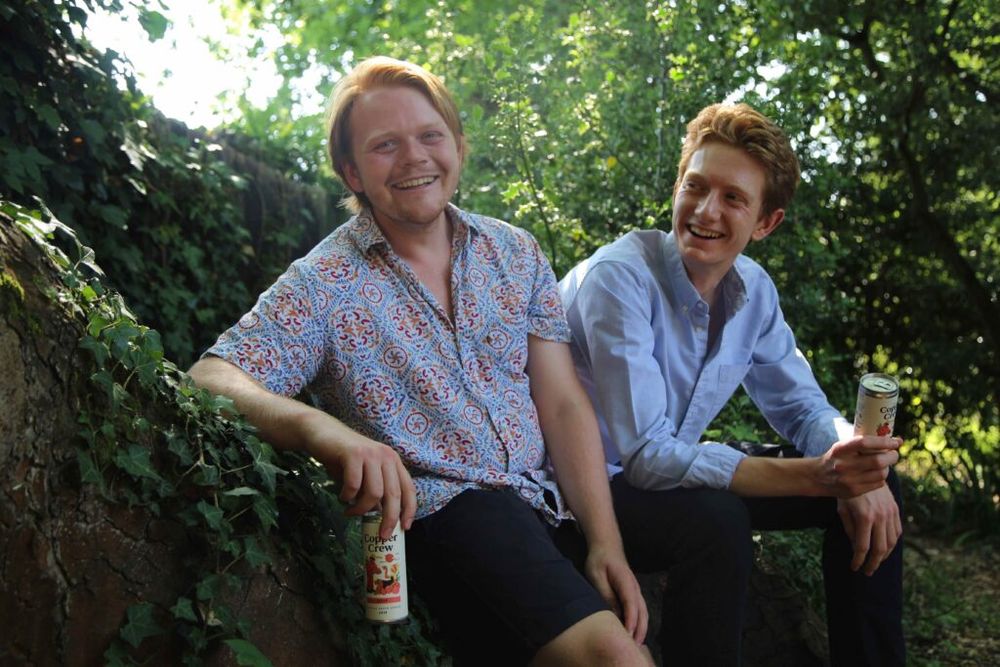
Friends Oli Purnell and Theo Gough have become business partners with The Copper Crew
What are the next stages in your growth plan in the coming years?
Purnell: Exactly that – to keep growing. To reach the next stage of growth we’re focused on building out our website sales and our number of stockists. From there it’s going to be about NPD, touching up the brand, and beginning to have those big conversations with buyers. We will be raising under SEIS in the coming months and that’s going to be a major milestone for us because up until that point, everything we’ve done has been bootstrapped and that hasn’t been without its difficulties. Having some cash to put behind marketing, PR and our operations is going to be massive for us.
Do you see yourselves expanding the brand into other formats like box and bottle?
Absolutely. Fundamentally we’re a wine business, not just a canned wine business. We want to companion alternative formats so things like bag-in-box, kegs, paper bottles etc have all perked our interest, it’s just about taking the right steps at the right times.
- If you would like to find out more about Copper Crew go to their website here and you can contact Oli Purnell directly on oli@coppercrew.co.uk.
